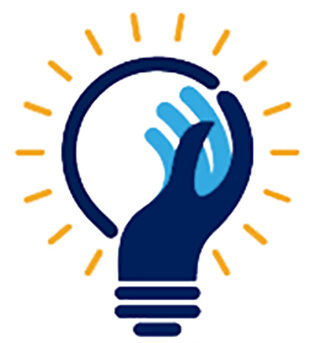By Chloe Caughman Read
“Hey, Chloe, what actually causes jaundice?”
This question was asked years ago during my very first semester as a Human Anatomy teaching assistant. I was an undergrad in college, feeling quite fancy with my new (unpaid but highly-desired) position in my university’s anatomy program. Well, I felt fancy until that question. My college sophomore self had no clue what caused jaundice. I froze. I didn’t want to look dumb– I was the TA after all. I was supposed to know these things. I was supposed to be the one with the answers, but I quickly realized I couldn’t know everything even though I was the teacher. I stammered out something vague about the liver and red blood cells and quickly tried to move on.
I was supposed to be the one with the answers, but I quickly realized I couldn’t know everything– even though I was the teacher.
Since that time, I have basically done a complete 180 when it comes to responding to questions I don’t know the answer to. After three years of being an anatomy TA and four years of being a high school teacher, I’ve become very comfortable saying “I don’t know.” Admitting to your students that you don’t know something feels vulnerable. It’s like you’ve been exposed, or maybe it makes you feel unqualified– at least that’s how it was for me. But logically, no one can know everything. And thinking back to my time as a student, I never judged my teachers when they couldn’t answer a question. But the more I started admitting when I didn’t know something, the more I realized how great it could be for my students.
It is a validating experience when a teacher says “I don’t know! That’s a great question!” It tells students that they thought deeply enough about a topic that they even stumped the teacher. It says that they thought about something in a way that their teacher never has. It can be empowering for a student if the teacher handles the situation delicately. Picture this: you asked a question so good that you stumped a role model of yours, and they responded by saying “Wow, I’ve never thought about that before! What a deep question. I don’t know the answer to that, but what a great line of thinking!” I bet you’d feel pretty good about yourself.
Questions that stump you can be a great way to bolster confidence in a student’s own thinking. Everyone needs a little encouragement sometimes. Students are constantly being tested, measured, and compared. They are stressed. Sometimes they are overworked. Can’t we show them a little validation when they think deeply enough to stump even us, their great and knowledgeable teachers?
Let’s do a little digging and figure out the answer together.”
What I wish I could go back and say to that anatomy student is this: “You know, I actually don’t know what causes jaundice. I’m impressed you thought to ask that question! We’re learning about blood and you thought to ask about that; what a great connection to make! You’re on the right track because jaundice has a lot to do with blood. Let’s do a little digging and figure out the answer together.”
Yes, by saying that, I would have had to step down from my high horse and admit that maybe I don’t know as much as I wish. But that’s okay. It may take a little vulnerability on our part, but isn’t it worth the pride and confidence our students feel in their own abilities after asking a really good question? It’s worth it for me. Next time your students stump you with a great question, pause and validate it. Praise them for thinking about something that you haven’t. Take a deep breath and say those three magic words: “I don’t know! Let’s find out together.”
